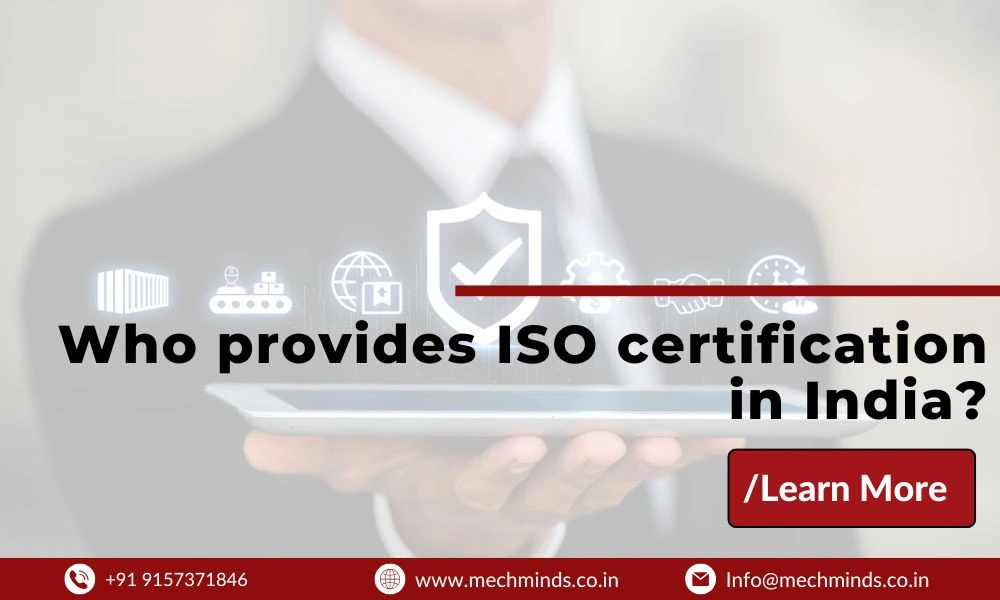ISO certification is famous across the world because it defines top standards for quality. Once they become ISO-certified, businesses in all sectors, such as manufacturing, IT, healthcare, and education get benefit. They achieve trust from customers, and they develop the ability to compete in all types of markets.
Many times, organizations are confused about who can run the process of issuing an ISO certification in India. Read this blog to get the complete information about regulations, procedures and educational documents required for ISO certificates in India.
Mechminds is a leading iso certification service provider in India that provides a complete guidance for ISO.
What is ISO Certification?
International Organization for Standardization (ISO) is a non-governmental organization that implements quality, safety, efficiency, and system management standards worldwide. But it is not involved in giving out certificates. There are many third-party organizations with accreditation for auditing, which give out the certifications once they ensure that an organization meets ISO standards.
Some of the popular ISO certifications in India are:
- ISO 9001 – Quality Management System
- ISO 14001 – Environmental Management
- ISO 27001 – Information Security
- ISO 22000 – Food Safety Management
- ISO 45001 – Occupational Health & Safety
Who can issue ISO certification in India?
In India, there are accredited national or international Certification Accreditation Bodies that can issue ISO certificates.
It is the responsibility of these Certification Bodies to check the systems and processes of an organization that is using certain ISO standards.
Accreditation Bodies are given the responsibility to assess and give accreditation to Certification Bodies.
You can ask iso certification consultants for further information on it.
ISO registration process
The process usually includes these steps:
- Choosing the appropriate ISO Standard is the first step. It depends on your company’s type and what do you expect to achieve. Based on this, you can use the ISO standard that fits your workflow.
- Doing Gap Analysis and Internal Audits are the next steps. The organization needs to conduct a gap analysis and put together suitable documents and procedures to fit the ISO requirements.
- The next process is launching the certification process with a Certification Body. You need to apply for a certificate from any of the accredited CBs once you choose it. The CB will conduct a review of documents and schedule inspections on-site.
- Now it is the turn to perform audits. In Stage 1, the documents are checked for their quality. In stage 2, the auditors inspect the facilities of the company to check if it follows the guidelines set by ISO.
- And finally, you get the ISO Certificate. When the organization meets the requirements, the Certification Body provides the ISO certificate. The validity of this certificate is normally three years, and it is reviewed by surveillance audits.
There are many iso consulting services in Ahmedabad that can give you complete information about the ISO and ISO certification process. Getting ISO certified will enhance the public image of the company and build trust among customers. It improves efficiency and output if valid audits are performed. ISO is the need of the day in today’s competitive business environment.

